News
Explore the latest news about Obermann programs, events, and our interdisciplinary community of scholars.
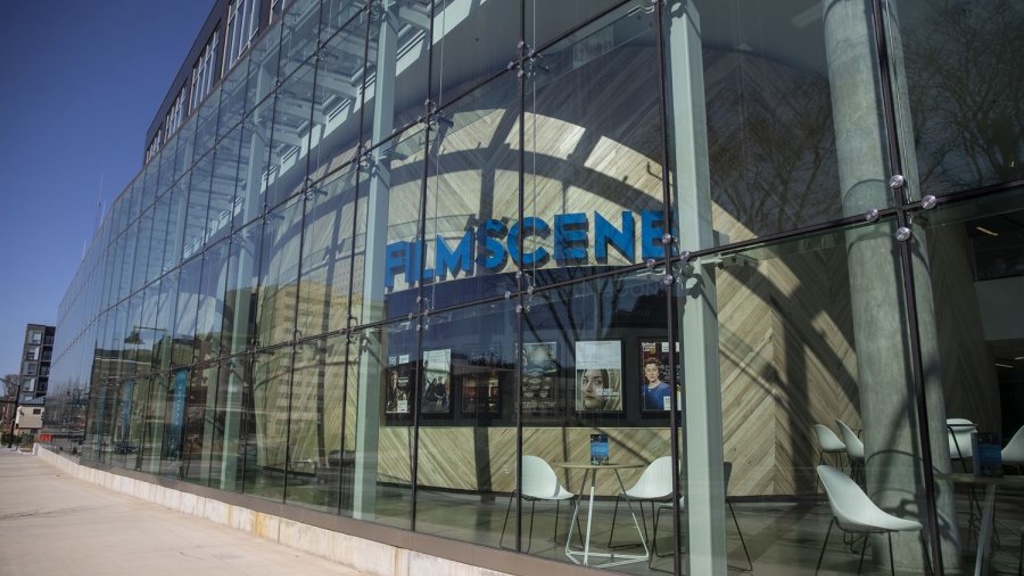
Obermann Center symposium’s ‘Frequências’ film festival explores Afro-Brazilian cinema
Sunday, April 2, 2023
The door of no return; the reinvention of belonging; Blackness in Brazil; these topics and more were the focus of this year’s Obermann Humanities Symposium. Presented in Iowa City by the Obermann Humanities Symposium & International Programs Major Project Award, the “Frequências” festival displayed lectures, cinema screenings, interventions, exhibits, and performances by contemporary Afro-Brazilian artists and scholars discussing Black diaspora.
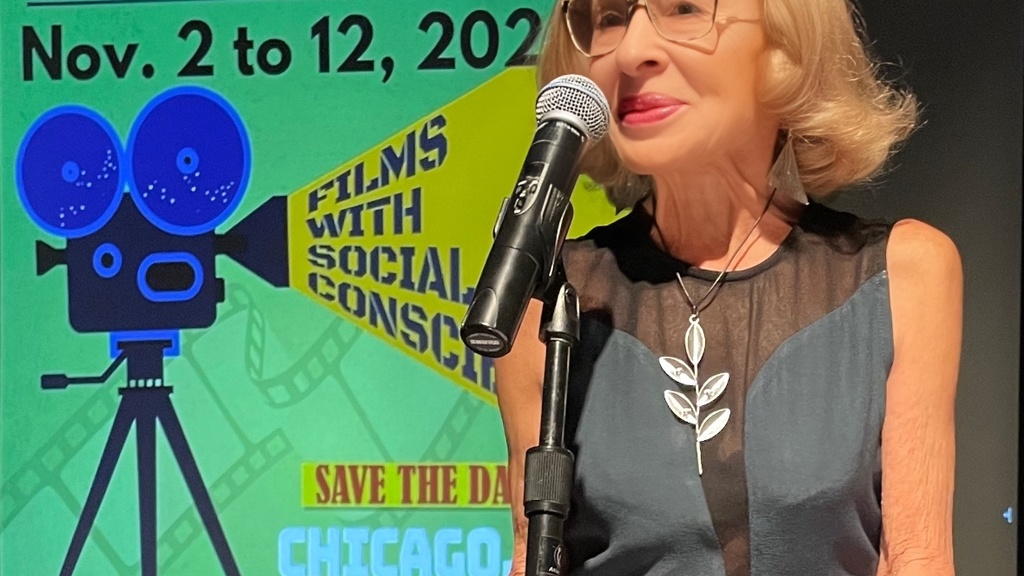
Building Bridges: The MOSTRA Brazilian Film Festival
Monday, March 20, 2023
Cris Lira: Tell us a little bit about yourself and how the idea for the Mostra: Brazilian Film Series has started.
Ariani Friedl: I am Brazilian, 'gaúcha' (RS), and I have been living in the United States for over 50 years. I worked at the University of Illinois @ Chicago for over 20 years as Director of the John Nuveen Center for International Affairs. I was a member of the Board of Directors of the International Latino Cultura Center for over 15 years and also organized the Chicago Latino Film Festival in 2006 when our Director was on a leave of absence. I have the fortune of meeting many of our Brazilian filmmakers who attended the Latino Festival which always brings 3 - 4 Brazilian films. The question always posed by our Brazilian filmmakers was: "How can we better publicize and where else can we show our Brazilian cinema in the United States?" The idea of creating a festival with only Brazilian films in the Chicago area was born from this and it developed with another idea of bringing films with social conscience to be discussed in universities and other cultural and educational centers.
C.L.: Could you please tell us how do you select the films to be featured in the series?
A.F.: I bring to our festival every year, different Brazilian film critics and filmmakers. I also have collaborators in SP who attend many of our film festivals in Brazil and help me collect a list of films with relevant social content, and also films related to our culture (art, music, literature, dance...), history, environment, etc... We compile these in a document with trailers and synopses and present them to my Curatorial Committee (composed of professors, critics, and experts in cinema) for a decision in which films we will invite to our festival.
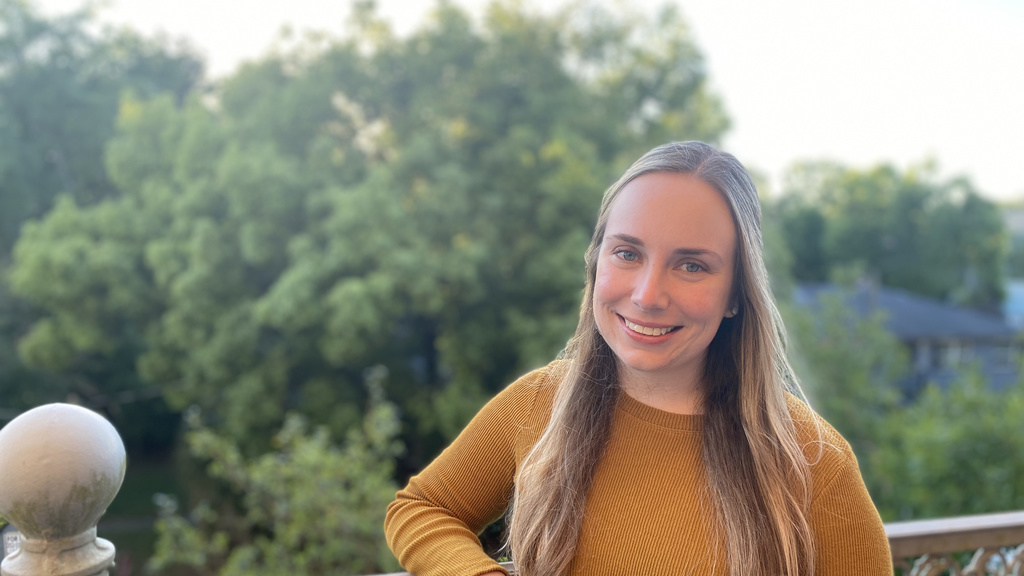
Lauren Burrell Cox is Obermann's New Assistant Director!
Wednesday, March 8, 2023
We're happy to announce that Lauren Burrell Cox has become Obermann's new Assistant Director! She'll be working with our director, Teresa Mangum, to design, plan, promote and conduct programs and to oversee communications for the Center.
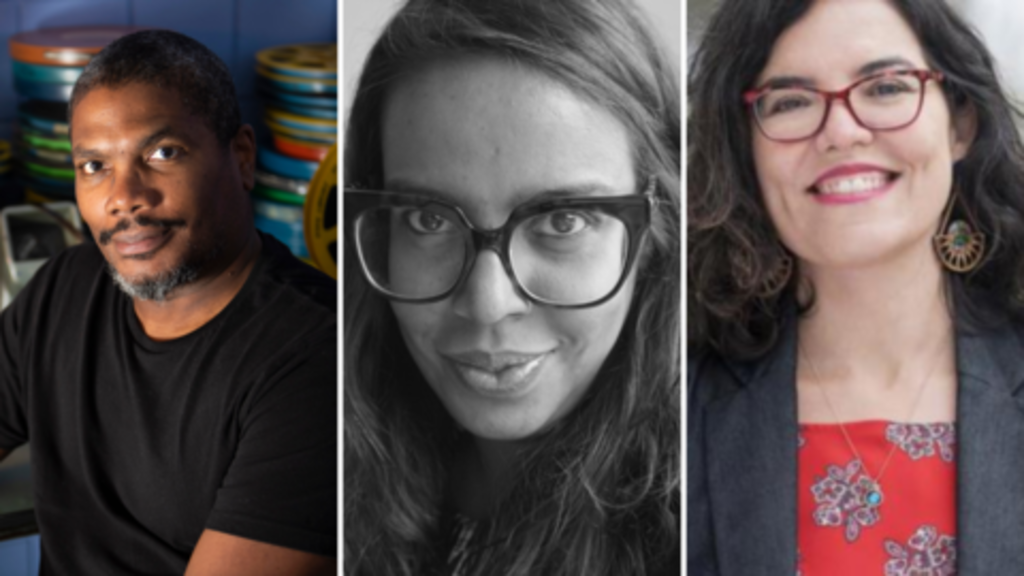
Frequências Symposium: A Discussion with Three Co-organizers
Thursday, February 23, 2023
Taking Brazil’s new Black cinema as its point of departure, Frequências: Contemporary Afro-Brazilian Cinema & the Black Diaspora will feature the emerging wave of young Afro-Brazilian filmmakers, curators, programmers, and scholars whose art and scholarship have already had an impact on international cinema.
Organized by Christopher Harris, Janaína Oliveira, and Cristiane Lira, this 2022-23 Obermann Humanities Symposium and International Programs Major Projects Award takes place March 30 – April 1, 2023, in Iowa City.
Below is a discussion with Harris, Oliveira, and Lira.
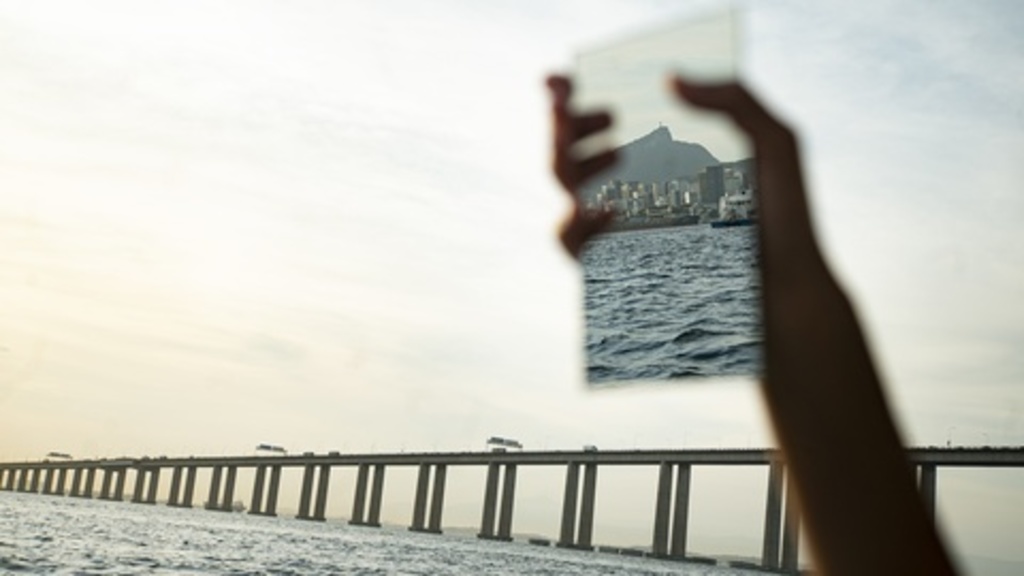
Frequências symposium a historical gathering of Brazilian filmmakers and scholars on the UI campus
Wednesday, February 22, 2023
Taking Brazil’s new Black cinema as its point of departure, Frequências: Contemporary Afro-Brazilian Cinema & the Black Diaspora brings together filmmakers, artists, scholars, and critics from across the globe to explore new ways of thinking about the Black diaspora.
This 2022-23 Obermann Humanities Symposium and International Programs Major Projects Award takes place March 30 – April 1, 2023, in Iowa City. Organized by Christopher Harris, F. Wendell Miller associate professor of cinematic arts at the University of Iowa; Janaína Oliveira, curator and researcher at the Federal Instituto of Rio de Janeiro; and Cristiane Lira, supervisor of Portuguese at the University of Georgia, the symposium will feature the emerging wave of young Afro-Brazilian filmmakers, curators, programmers, and scholars whose art and scholarship have already had an impact on international cinema.
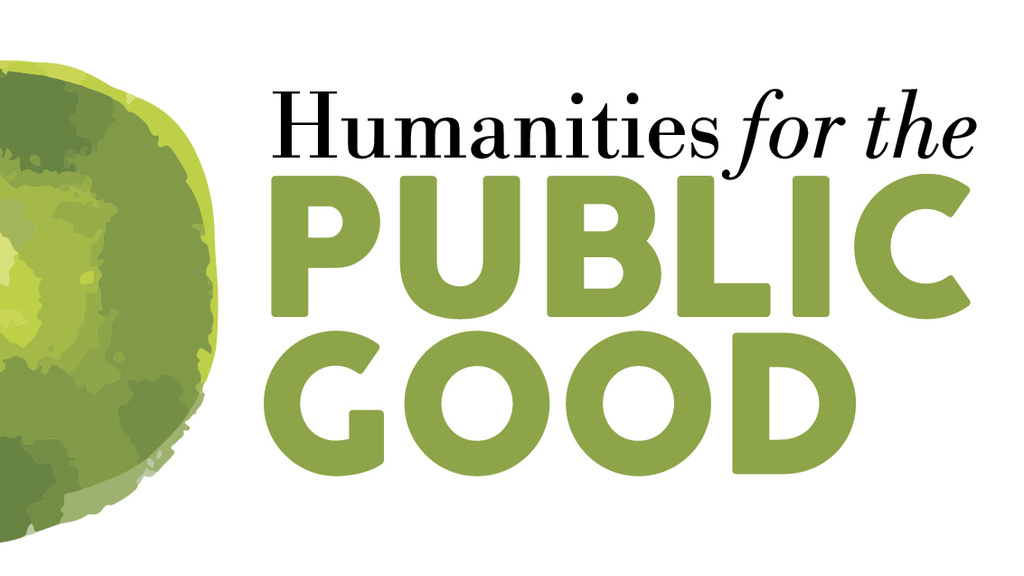
Working to Create Nets: A Humanities for the Public Good Update
Tuesday, October 25, 2022
Back when we all traveled regularly to conferences, we did so to share research, to learn from colleagues, and to form new relationships, even friendships, rooted in shared intellectual interests. Conferences help graduate students build skills—capturing complex arguments in short presentations, public speaking, asking helpful rather than grandstanding questions, connecting with fellow experts, and more. In other words, conferences are for networking.
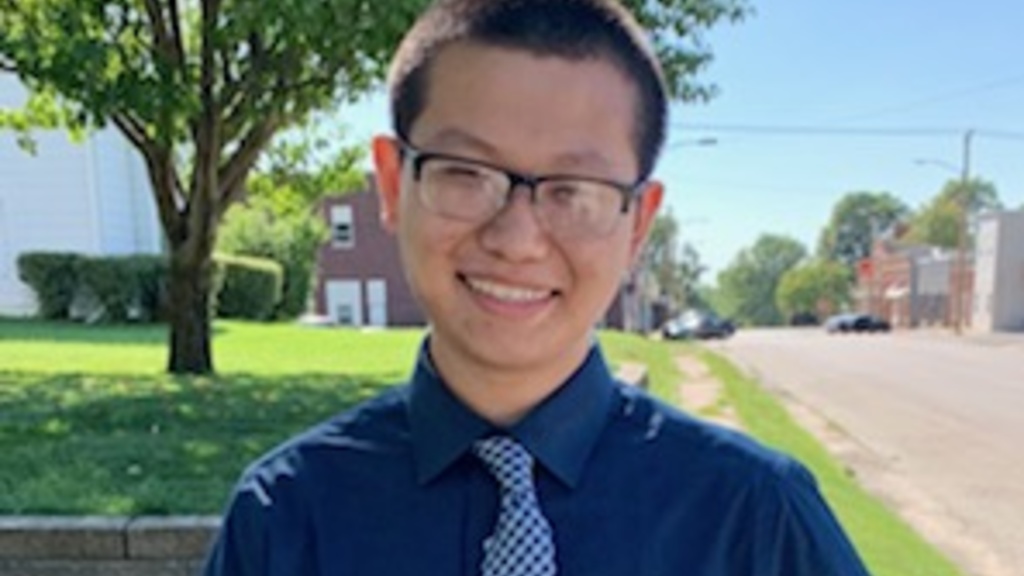
Meet Willie Zheng, our Undergraduate Communications Assistant
Wednesday, October 19, 2022
This year, we're thrilled to be working with undergraduate communications assistant Willie Zheng. A pharmacy major, Willie is a freshman from Marion, Iowa. His work at Obermann ranges from calendaring to social media strategizing. We're so glad to have found him!
What inspired you to choose pharmacy as both your major and career path?
WZ: I think the foundational inspiration that led me to decide pharmacy as my major was COVID. I was really inspired by the way our medical researchers and our pharmacists became a critical step in getting the pandemic under control, getting our kids, including myself, back in school, and getting people back to work. In addition, throughout my life, I have always wanted to have a career within the healthcare industry, as well as working and serving local communities like my hometown. Pharmacy is a great example of a healthcare career that serves communities across the nation in providing life-saving medications for all.
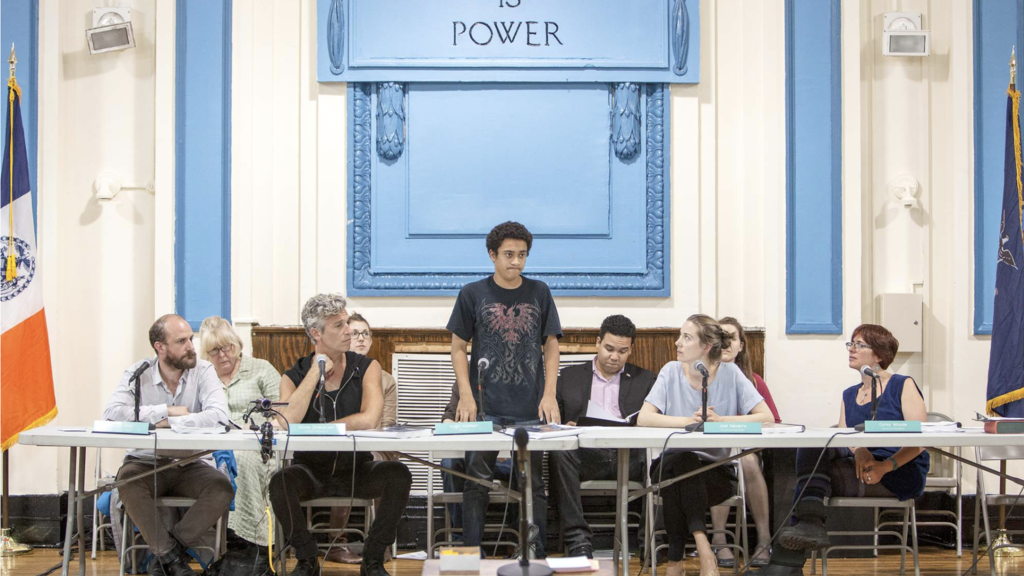
The City We Make Together — New book explores civic engagement
Wednesday, September 28, 2022
You walk into a space for a performance—not a theater, per se, but a gym or a ballroom—and find two rows of chairs with an aisle down the middle. Up front, a long table is set with name tags, microphones, and a folder in front of each space. Cameras are trained on the table, and large monitors on either side of the room broadcast what they capture along with captions. A microphone is positioned toward the front of what could be called the audience side of the room, while an American flag is posted behind the table.
This is the set of City Council Meeting, a performance that occurred in five U.S. cities (Houston, San Francisco, New York City, Keene, and Tempe) in the mid-aughts. It is the focus of a new book, The City We Make Together: City Council Meeting’s Primer for Participation in the Humanities and Public Life series, a collaboration between the Obermann Center and the University of Iowa Press. Written by two of the core theater makers behind the piece, Mallory Catlett and Aaron Landsman, the book also serves as a prelude and additional tool for a curriculum that is being created as an extension of the production.
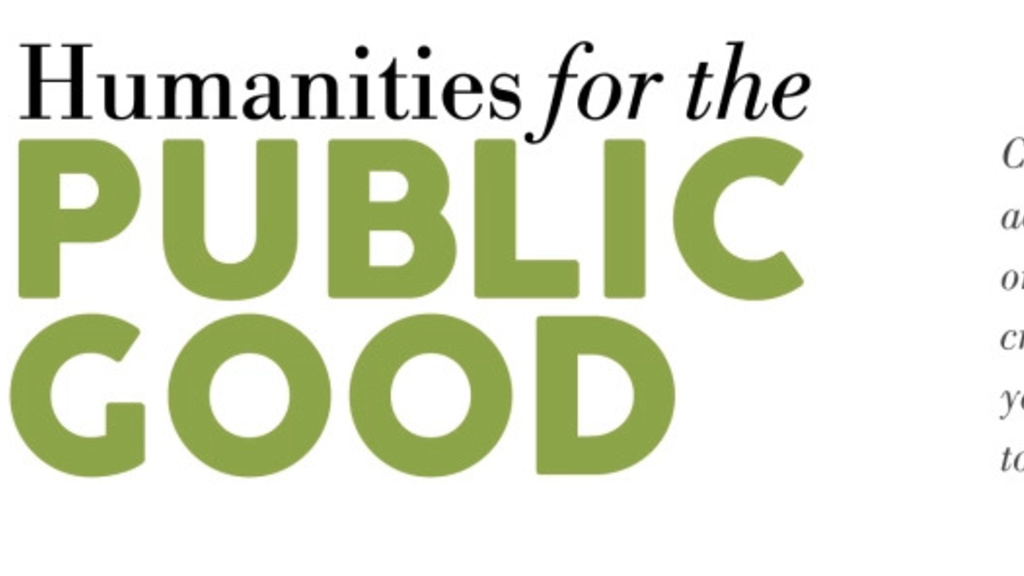
Redesigning Introductory Graduate Courses
Monday, September 26, 2022
During the past several years, nearly a hundred faculty, staff, and graduate students have been part of the transformational work of the Mellon Foundation-funded Humanities for the Public Good (HPG). Together, we developed an appreciation for the value of incremental changes. Through a series of HPG course mini-grants, we invited faculty to find discipline-appropriate ways to integrate HPG values and practices, asking each awardee: How can we prepare students to use humanistic methods and mindsets and a commitment to social justice to position themselves for success in diverse careers?” Many faculty members who took advantage of the mini-grants were rethinking introduction to graduate studies courses in their departments.
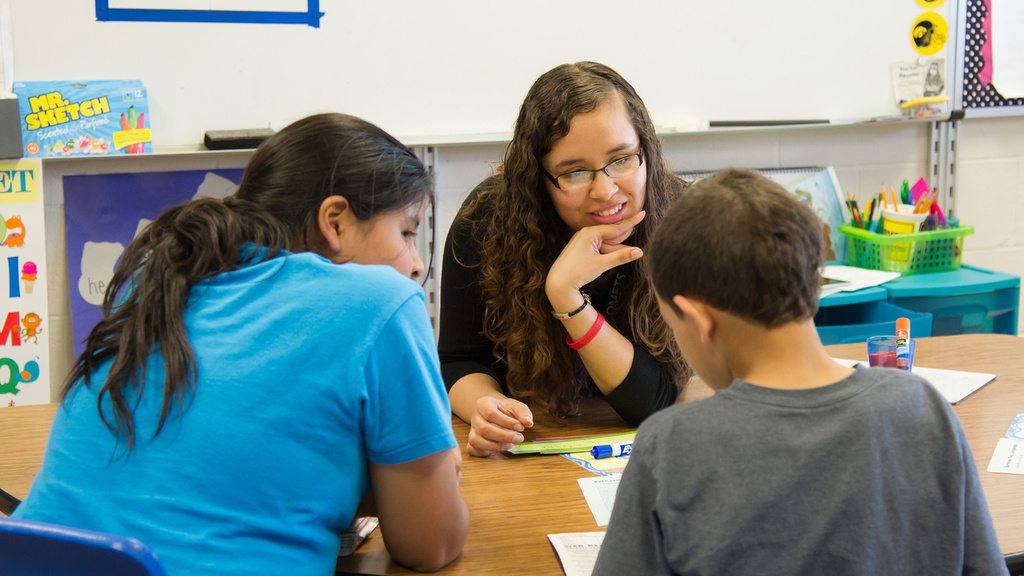
New National Translation Center Builds on UI's Strengths and Extends Reach
Thursday, September 8, 2022
Two Obermann Center–affiliated scholars have been awarded one of the largest amounts ever granted to a humanities project at the University of Iowa. Aron Aji, director of the MFA in Literary Translation, and Pam Wesely, an associate dean in the College of Education and professor of multilingual education, are the PIs for a Department of Education grant that totals more than $1 million. Aji co-directs the Obermann Working Group Translation across the Humanities and Wesely was a 2018 Fellow-in-Residence.
The four-year grant will allow the UI to launch a new National Resource Center (NRC) to advance translation and global literacy skills for K-16 students and educators, graduate students, and established scholars. It joins an elite group of NRCs at universities across the country and becomes the only one focused on translation. NRCs are language and area or international studies centers that serve as national resources for teaching any modern foreign language.
Pagination